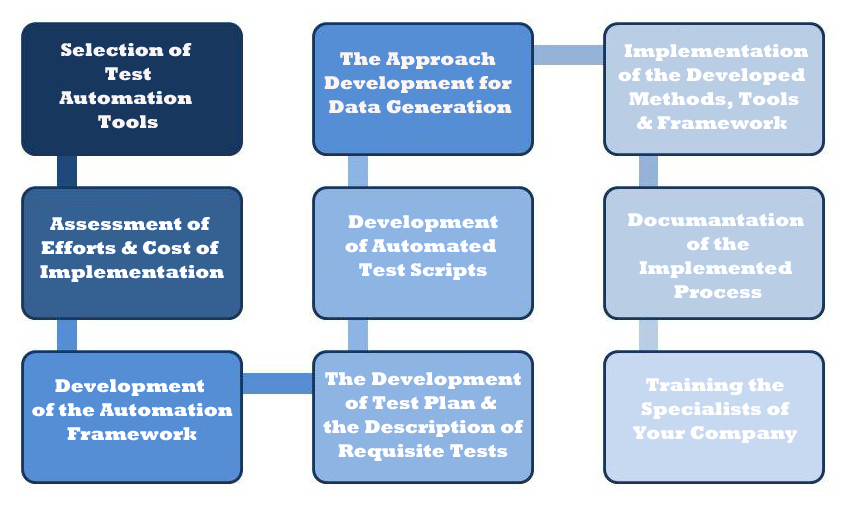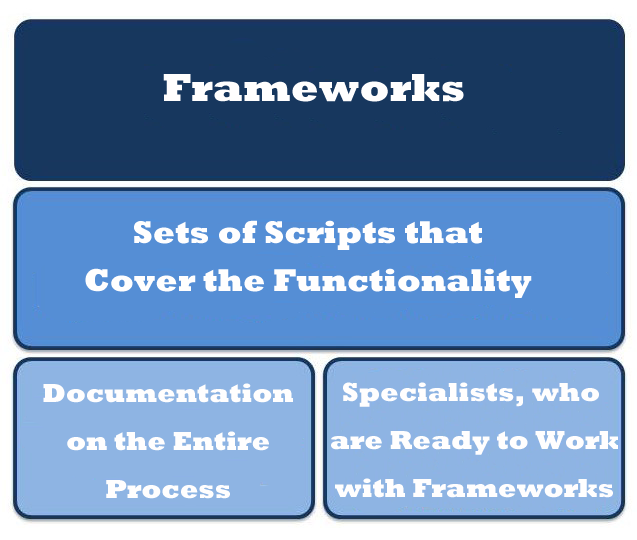Every software project aims to assure the quality of the developed software product. In order to guarantee this quality, the dedicated testing teams perform regression testing service that becomes an object for automation. Automation improves the effectiveness of testing and the software quality.
The automation of functional testing services can be applied on different levels. On the lower levels (module & integration testing), automation comes down to unit-tests writing that allow running and testing separate procedures. On the highest levels (system & acceptance testing), automation process imitates the real user’s work with the use of the interface.
On the basis of these interfaces, testers choose automation tools that can be applied to:
[checklist type=”eg. checked, dotted, arrowed” margin_bottom=”no”]
- Windows – to the interface;
- Web – to the interface;
- Web – to the services.
[/checklist]
In solving the problem of automation project, we go through the following steps:
Automation aims to assure the effectiveness of the testing process by means of releasing the specialists who are busy with regression testing. The tests what are performed automatically require less of human resources and this is cost-effective. Besides, the reduction of the human factor that has the influence on the product quality takes place.
Work results are the Following:
When considering the automation, it’s necessary to mention the cost on implementation. The majority of means are fee-paying and require additional test writing and supporting their real state. Finding the balance between automation & manual testing service is an important task within every testing team.












Leave A Comment